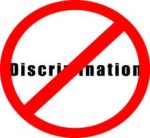By Mark Anderson and Katrina Thornton
 In Levy v. Wilkie, an Illinois court of appeals ordered a trial of an African American police officer’s race discrimination lawsuit. Levy worked as a police officer at the Hines VA Hospital. The court found that inconsistent discipline practices raised a jury question on whether Levy had been subject to racial discrimination.
In Levy v. Wilkie, an Illinois court of appeals ordered a trial of an African American police officer’s race discrimination lawsuit. Levy worked as a police officer at the Hines VA Hospital. The court found that inconsistent discipline practices raised a jury question on whether Levy had been subject to racial discrimination.
Two police officers who worked at the hospital run by the Department of Veterans Affairs were accused of sexual harassment. Levy, who is African American and had previously complained of discrimination, was suspended, while a white officer who had reported to the same supervisor and who had engaged in similar misconduct was never disciplined and was later promoted. Believing that he had been treated differently because of his race, Levy sued. The trial court granted the employer’s motion to dismiss, finding that the two officers were not similarly situated.
On appeal, Levy argued that he had provided enough facts for his discrimination claim to survive the Department’s motion to dismiss, contending that a jury could decide the allegations of years-long harassment involving the white officer were at least as serious as the single charge of misconduct against him. Thus, the black officer argued, he and the white officer were similarly situated, and the Department had treated the white officer more favorably than the African American officer.
The Department argued, of course, that the officers were not similarly situated and that the different disciplinary actions were appropriate.
Theappellate court overturned the trial court’s dismissal. It concluded that a reasonable jury could find that the black officer and the white officer were similarly situated. Both had the same disciplining supervisor. Both officers were subject to the same anti-harassment policy. Both were accused of comparable misconduct: making unwanted, sexually tinged comments, stalking and invading the personal space of their accusers, and frightening their accusers.
The court stated that “because [the black officer] and [the white officer] were accused of breaking the same rule, pursuing their accusers in close physical proximity, describing their body parts verbally, and striking similar fears in them, a jury reasonable could find that they were similarly situated, even if their actions were not identical or committed as the same time of day.”
This case reminds us that the essence of a discrimination claim is when a person not in the protected group is treated more favorably than a person who is in the protected group. Here, a black officer was disciplined for sexual harassment while a white officer who had also engaged in sexual harassment was not disciplined and was promoted. Although sexual harassment is never acceptable, it should go without saying that discipline for sexual harassment, or any other form of misconduct, should not be harsher for black officers than for white officer.
**Visit our Premium Website for more information on Gender and Race Discrimination Claims and Racial Discrimination**



